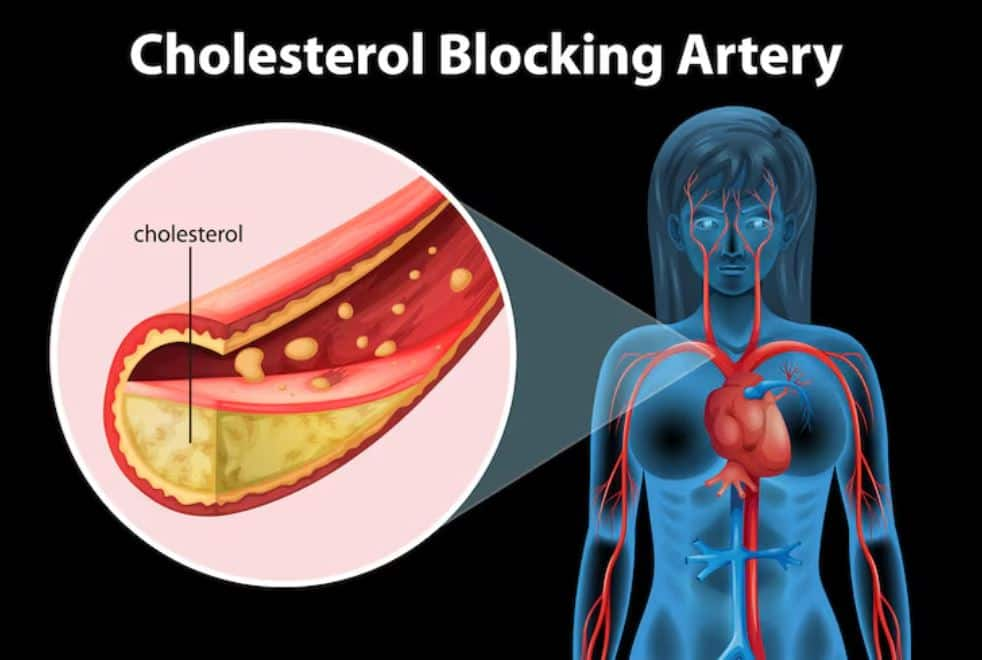Good Vs Bad Cholesterol: For years, cholesterol has been painted as the enemy of the heart, but the truth is more nuanced. Cholesterol is essential for hormone production and cell repair. The real concern is the type and balance. LDL (‘bad’ cholesterol) can deposit in arteries, while HDL (‘good’ cholesterol) helps clear it away. Problems arise when LDL outweighs HDL.
Dr Dithesh M, Consultant Cardiology, KMC Hospital, Dr B R Ambedkar Circle, Mangalore, says, “Dietary choices play a part, but genetics often decide how our body handles cholesterol. That is why two people eating the same diet may have very different lipid profiles. Regular lipid testing from the age of 30 or earlier if there is a family history of heart disease remains the safest way to detect problems early.”
When Lifestyle Changes Aren’t Enough
“Lifestyle measures are the first step: cutting trans fats, moderating refined carbs, exercising, and keeping weight in check. However, if cholesterol levels remain high despite these changes, or if the patient already has diabetes, hypertension, or evidence of heart disease, medicines like statins are strongly advised. They reduce heart attack and stroke risk beyond what diet alone can achieve,” Dr Dithesh further explains.
Simple Daily Habits That Protect the Heart
A practical step is replacing hydrogenated fats and repeated-use cooking oil with fresh, moderate amounts of healthier oils like mustard, groundnut, or olive oil. He says, “Pair this with 30 minutes of brisk walking daily, and the heart gets powerful protection.”
Good Cholesterol vs Bad Cholesterol
HDL (high-density lipoprotein) is considered good cholesterol because it plays a protective role in our heart health. On the contrary, LDL (low-density lipoprotein) is referred to as bad cholesterol. It is a precursor to strokes and heart attacks. It is a well-established fact and not just a medical myth.
Dr Pradeep Haranahalli, Consultant – Interventional Cardiology, Manipal Hospital Whitefield , says, “Excess LDL can cause narrowing and blockage of blood vessels supplying the heart, brain, legs, and eyes. LDL build-up promotes plaque formation, hardening of blood vessels, and circulation problems, all of which can increase cardiovascular risk. The good cholesterol, or HDL, facilitates reverse cholesterol transport. It removes excess LDL and plaque deposits from the blood so the liver can process and excrete them out of the body. Therefore, having higher HDL levels helps lower the risk of cardiovascular disease and clogged arteries.”
Genetics vs Diet: What Matters More?
Dr Pradeep says, “The cholesterol profile of every individual is primarily genetic. Almost 90% of the bad cholesterol is produced internally (by the liver and other cells), and only about 10% can be the direct result of the food we consume.” Therefore, genetics plays a major part in cholesterol levels and how our body processes it. “Some individuals have a tendency for high cholesterol levels, which puts them at a higher risk regardless of their lifestyle factors,” he explains.

However, diet and lifestyle are still important when it comes to maintaining our health. Dr Pradeep says, “High-fat substances, primarily fried foods containing more saturated fats and trans fats, processed snacks, fatty meats, egg yolks, and excessive caffeine intake, are directly linked to higher levels of LDL cholesterol. Smoking can also worsen cholesterol balance and cardiovascular health. To reduce LDL levels, avoiding these triggers is important, along with other lifestyle changes such as regular exercise and weight management. When lifestyle modifications don’t help to lower LDL cholesterol, medications such as statins can be prescribed.”
Best Age For Cholesterol Screening: Men Vs Women
Dr Milan Ghadei, Consultant Interventional Cardiologist, Manipal Hospital, Bhubaneshwar, says, “Although cholesterol is often viewed negatively, it is important to consider that balance is the most important. Children and adolescents should have their first screening between 9-11 years and a second screening between ages 17–21, more frequently for those who are overweight, have diabetes, or a family history of high cholesterol. Healthy adults should have screening every 4-6 years.”
He says, “Men should have a screening by age 35 and women by age 45. Older adults over 65 should be screened annually. Early screening may be required in patients with risk factors like high blood pressure, diabetes, being overweight, a family history of high cholesterol, or a history of heart disease.”
Which Cooking Oil Is Best?
In many Indian kitchens, the debate and confusion about fats is understandable: ghee, coconut oil, mustard oil, olive oil, what to choose? In actuality, it is all about moderation and balance. Dr Milan says, “Ghee is a good source of good fats and fat-soluble vitamins but should be limited in your cooking compared to other heart-healthy oils. Mustard oil is a good source of omega-3 fatty acids and is quite healthy for the heart, along with olive oil. Coconut oil is natural, but because of its high saturated fat content, it should be limited, especially for those with elevated cholesterol. A variety of oils, in moderation and small quantities, along with a plant-based diet rich in fruits, vegetables, and whole grains, will do wonders for anyone’s heart health.”

